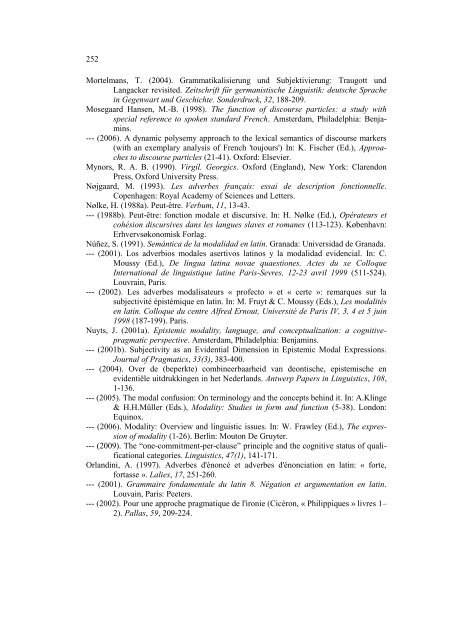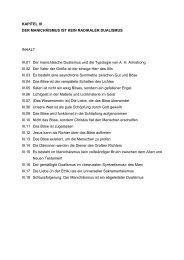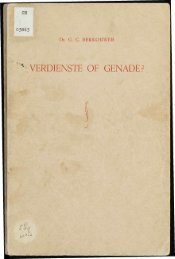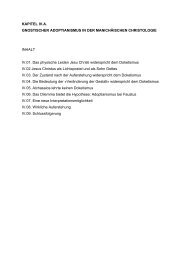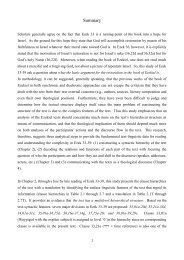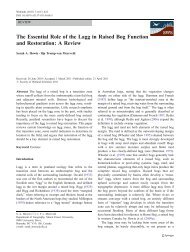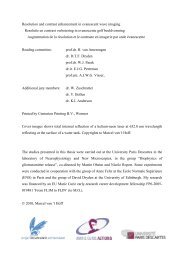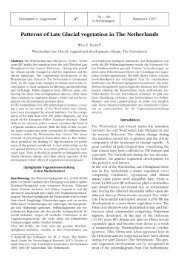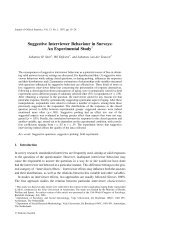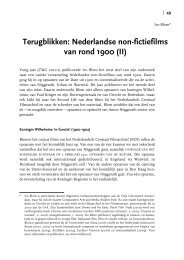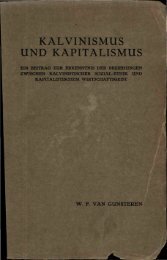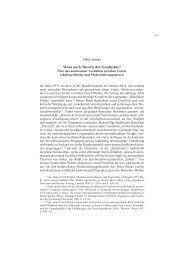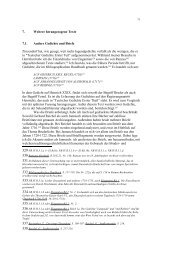Lateinische epistemische Partikeln - VU-DARE Home - Vrije ...
Lateinische epistemische Partikeln - VU-DARE Home - Vrije ...
Lateinische epistemische Partikeln - VU-DARE Home - Vrije ...
Sie wollen auch ein ePaper? Erhöhen Sie die Reichweite Ihrer Titel.
YUMPU macht aus Druck-PDFs automatisch weboptimierte ePaper, die Google liebt.
252<br />
Mortelmans, T. (2004). Grammatikalisierung und Subjektivierung: Traugott und<br />
Langacker revisited. Zeitschrift für germanistische Linguistik: deutsche Sprache<br />
in Gegenwart und Geschichte. Sonderdruck, 32, 188-209.<br />
Mosegaard Hansen, M.-B. (1998). The function of discourse particles: a study with<br />
special reference to spoken standard French. Amsterdam, Philadelphia: Benjamins.<br />
--- (2006). A dynamic polysemy approach to the lexical semantics of discourse markers<br />
(with an exemplary analysis of French 'toujours') In: K. Fischer (Ed.), Approaches<br />
to discourse particles (21-41). Oxford: Elsevier.<br />
Mynors, R. A. B. (1990). Virgil. Georgics. Oxford (England), New York: Clarendon<br />
Press, Oxford University Press.<br />
Nøjgaard, M. (1993). Les adverbes français: essai de description fonctionnelle.<br />
Copenhagen: Royal Academy of Sciences and Letters.<br />
Nølke, H. (1988a). Peut-être. Verbum, 11, 13-43.<br />
--- (1988b). Peut-être: fonction modale et discursive. In: H. Nølke (Ed.), Opérateurs et<br />
cohésion discursives dans les langues slaves et romanes (113-123). København:<br />
Erhvervsøkonomisk Forlag.<br />
Núñez, S. (1991). Semántica de la modalidad en latín. Granada: Universidad de Granada.<br />
--- (2001). Los adverbios modales asertivos latinos y la modalidad evidencial. In: C.<br />
Moussy (Ed.), De lingua latina novae quaestiones. Actes du xe Colloque<br />
International de linguistique latine Paris-Sevres, 12-23 avril 1999 (511-524).<br />
Louvrain, Paris.<br />
--- (2002). Les adverbes modalisateurs « profecto » et « certe »: remarques sur la<br />
subjectivité épistémique en latin. In: M. Fruyt & C. Moussy (Eds.), Les modalités<br />
en latin. Colloque du centre Alfred Ernout, Université de Paris IV, 3, 4 et 5 juin<br />
1998 (187-199). Paris.<br />
Nuyts, J. (2001a). Epistemic modality, language, and conceptualization: a cognitivepragmatic<br />
perspective. Amsterdam, Philadelphia: Benjamins.<br />
--- (2001b). Subjectivity as an Evidential Dimension in Epistemic Modal Expressions.<br />
Journal of Pragmatics, 33(3), 383-400.<br />
--- (2004). Over de (beperkte) combineerbaarheid van deontische, <strong>epistemische</strong> en<br />
evidentiële uitdrukkingen in het Nederlands. Antwerp Papers in Linguistics, 108,<br />
1-136.<br />
--- (2005). The modal confusion: On terminology and the concepts behind it. In: A.Klinge<br />
& H.H.Müller (Eds.), Modality: Studies in form and function (5-38). London:<br />
Equinox.<br />
--- (2006). Modality: Overview and linguistic issues. In: W. Frawley (Ed.), The expression<br />
of modality (1-26). Berlin: Mouton De Gruyter.<br />
--- (2009). The “one-commitment-per-clause” principle and the cognitive status of qualificational<br />
categories. Linguistics, 47(1), 141-171.<br />
Orlandini, A. (1997). Adverbes d'énoncé et adverbes d'énonciation en latin: « forte,<br />
fortasse ». Lalies, 17, 251-260.<br />
--- (2001). Grammaire fondamentale du latin 8. Négation et argumentation en latin.<br />
Louvain, Paris: Peeters.<br />
--- (2002). Pour une approche pragmatique de l'ironie (Cicéron, « Philippiques » livres 1–<br />
2). Pallas, 59, 209-224.


